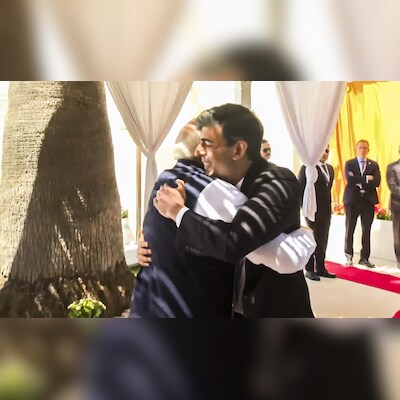Issues to be resolved include tariffs in areas such as electric vehicles, alcoholic beverages and services.
)
Press Trust of India New Delhi
The outstanding issue regarding the proposed free trade agreement (FTA) between India and the UK will be taken up after the UK general elections, a senior government official said on Friday.
Issues that need to be resolved include tariffs in areas such as electric vehicles, alcoholic beverages and services.
Click here to connect with us on WhatsApp
“The outstanding issues to conclude the agreement will be resolved once the general election in the UK is over,” L. Satya Srinivas, additional secretary at the Commerce Department, told reporters here.
The UK general election will take place on July 4th.
India and the UK began FTA negotiations in January 2022 to strengthen economic ties between the two countries.
The agreement has 26 chapters, covering goods, services, investment and intellectual property rights.
India-UK bilateral trade has increased to $21.34 billion in 2023-24 from $20.36 billion in 2022-23.
On the India-EU trade agreement, Srinivas said the eighth round of talks is scheduled to take place in Brussels from June 24-28.
Another official said the EU was now willing to consider India’s position much more favourably.
“They have put some of our issues in a better perspective,” he said, adding that other countries’ willingness to look at the China Plus initiative “is also seen when we are negotiating FTAs with these countries.”
Indian and EU officials also discussed a carbon tax.
The CBAM or carbon tax (a type of import tariff) will come into force from 1 January 2026, while domestic companies in seven carbon-intensive sectors, including steel, cement, fertiliser, aluminium and hydrocarbon products, will be required to share data on their carbon emissions with the EU from 1 October 2023.
Officials said companies have started reporting the data.
“We are talking with the EU about different areas where mechanisms need to be developed under the CBAM. We have also put in place a carbon platform, so what are the criteria for carbon pricing itself… what are the other measures that introduce carbon content, how do they take into account certification and benefits to small and medium-sized enterprises,” he said.
As for the proposed free trade agreement with Oman, discussions on remaining issues are progressing and the country is moving towards concluding it, the official said.
“There are some issues in Oman too and there are concerns about the petrochemical sector. Indian companies are also building capacity in that area and we are discussing that,” the official said.
Oman is seeking tariff reductions on petrochemical products such as polypropylene and polyethylene, which are primarily used in the plastics industry.
Currently, tariffs on these products are around 7.5%.
Oman is the third largest export destination among Gulf Cooperation Council (GCC) countries.

